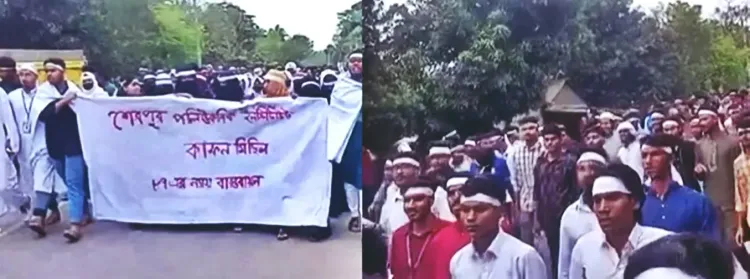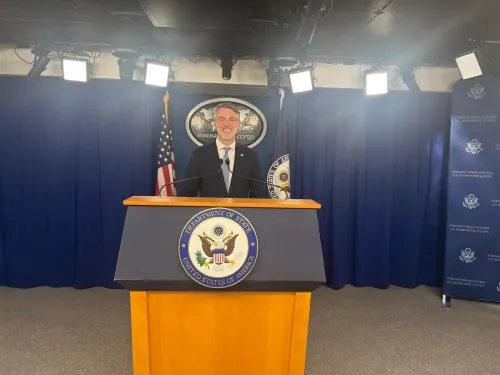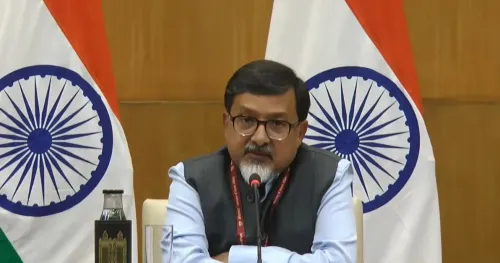Why Are Polytechnic Institutes in Bangladesh on Nationwide Shutdown for Technical Education Reforms?

Synopsis
Key Takeaways
- Nationwide Shutdown: Polytechnic institutes in Bangladesh are currently closed due to student protests.
- Six-Point Agenda: Students are demanding critical reforms in technical education.
- Government Response: A committee has been formed to address the students' demands.
- Ongoing Unrest: Protests are intensifying amid concerns over educational standards.
- Broader Impact: The protests reflect larger issues within Bangladesh's education system.
Dhaka, April 29 (NationPress) Protests among students have intensified in Bangladesh as the Technical Students' Movement, which represents the voices of students in public and private technical educational institutions, declared a nationwide shutdown at all polytechnic institutes on Tuesday. This action aims to highlight a six-point demand for essential reforms in technical education.
In an effort to press their demands, students at various institutions disrupted both academic and administrative functions by locking down their administration buildings.
Students from Dhaka Polytechnic Institute were seen chanting slogans supporting their cause and barricading academic facilities, the principal’s office, and the main entrance gate on Tuesday morning, as reported by local media.
“We have received various assurances in the past. Yet, no concrete steps have been taken to address our concerns. Thus, we are compelled to enact a shutdown program, during which all academic and administrative functions will be suspended,” a protesting student was quoted by The Business Standard.
The push for reform has been ongoing, with student protests gaining momentum since April 16.
Last week, students blocked roads, highways, and railway lines across the nation, causing significant disruptions for local residents due to traffic congestion.
In response to the unrest, the Ministry of Education established a committee to create a roadmap for addressing the students' demands.
Although students initially agreed to pause their protests on April 22, they reversed this decision the following day and resumed their demonstrations, according to bdnews24.
“Our respected director general initially stated that our six-point demands were valid; however, he later claimed that some were reasonable and others were not. This inconsistency is why we have returned to the streets. We remain steadfast in our demands. To amend the current dire state of technical education, our requests must be met,” stated Md Rahel Rana Hawladar, a student from Dhaka Polytechnic Institute.
This week, polytechnic students resumed protests nationwide, urgently calling for action on their six-point agenda.
Reports mentioned that their demands include revoking the 30 percent promotion quota for craft instructors, implementing a standardized four-year curriculum with an age limit for admissions, and transitioning to English as the medium of instruction.
They also seek the enforcement of reserved quotas for technical positions under Grade 10 and the establishment of a dedicated technical university for polytechnic and mono-technic graduates.
These reforms are deemed essential by the students to ensure merit-based hiring, enhance technical education, and improve career opportunities within polytechnic institutes.
Recently, another wave of student protests emerged in Bangladesh as agricultural diploma students initiated the “Agri Blockade” program, staging a sit-in demonstration that blocked all entrances of the Department of Agricultural Extension (DAE) in Dhaka, demanding higher education opportunities alongside eight other critical requests.
In recent months, the country has seen a significant rise in student protests under the interim government led by Muhammad Yunus, amid a worsening law and order situation.









